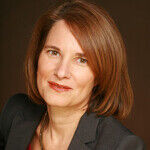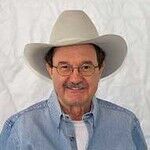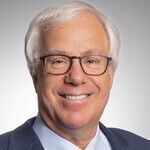It was in the low 50s, if that, yesterday morning as I stood in the return line at Costco, which stretched outside. I'm not dressed for this weather, I thought to myself, standing there in pants, a long-sleeved blouse, quilted vest, socks and shoes. Last week, when I was in Boston and it was barely in the 50s, I was dressed in almost the same clothes — PLUS a coat and hat. I even found a scarf at a secondhand store. But in Los Angeles, where I live, it almost never occurs to anyone to put on a coat — and hats are decorative items, not head warmers.
As I stood there shivering, wondering how I'd ever made it through all the New England winters of my youth and young adulthood, I noticed the woman in front of me, chatting amiably with what looked to be her boyfriend. She also was not wearing a coat and hat. But unlike me, she also was not wearing long sleeves, or a vest, or even socks and shoes. She had on jeans and a sleeveless T-shirt. And sandals. She was not shivering. Her boyfriend was wearing shorts and a T-shirt, and he wasn't shivering either.
Who shivers in Los Angeles?
As the line snaked inside the store, the temperature didn't change. In Boston, a week before, the minute you got inside anywhere, blasts of hot air hit you in the face. People are always saying, "Close the door." In Los Angeles, the door stays open and almost no one ever turns on the heat.
"Aren't you cold," I finally asked the woman in front of me.
She looked surprised, as did her friend, as if I was the first to point out to them what was inescapable to me: It was unseasonably cold in Los Angeles.
"Oh," she replied, glancing at her bare arms and bare feet (Were those goose bumps I saw?), it will warm up later.
So?
She expected it to be warmer; she certainly expected it would be warmer later, so she wasn't cold now. The guy with her just laughed. "T-shirt weather," he said with a smile.
I stopped my chattering teeth long enough to smile back.
It's all about what you expect.
Sure, some people tolerate cold better than others. But how it affects us, it seems to me, has almost as much to do with what we expect as it does with the levels of iron in our blood. Expect to feel cold and you will. Think about it and you'll feel even colder. Focus all your energy on it and your teeth start chattering. Forget about it completely, never expect it at all, and you barely even notice. Mind over matter.
Pain is like that, too. It's there and then it's not. You're in pain, and then something distracts you and you're in another place and the pain is gone — until the distraction is over and you realize it was never really gone. Or was it?
My mother went through life expecting the worst. Her mother died unexpectedly when my mother was 18. That was the last unexpected tragedy in her life. From then on, she expected the worst and found it often enough to justify an approach to life that led her to avoid pleasure if it might bring pain (we never had a dog because of how we would feel when it died), and to disappoint those who loved her rather than take a chance on something going wrong (she skipped my daughter's bat mitzvah, notwithstanding our pleas and promises, because what if she didn't feel well when she was there).
She was always cold.
Like many people, I was surprised by the recent study of cancer patients that found that a positive outlook had no impact on life expectancy. I expect the opposite. Cells, it seems, have a mind of their own.
What the study didn't measure, of course, was the quality of life — not how long people lived, but how well, which counts for as much. Even if our expectations don't change the result, they certainly shape the journey. Knowing that I get cold, I try to dress warmly, but I never let the weather forecast dictate my plans. My mother was afraid to go out in the cold. She stayed warm, but she paid a huge price for it.
I wear a hat. Happy Thanksgiving.
To find out more about Susan Estrich and read features by other Creators Syndicate writers and cartoonists, visit the Creators Syndicate website at www.creators.com.






View Comments